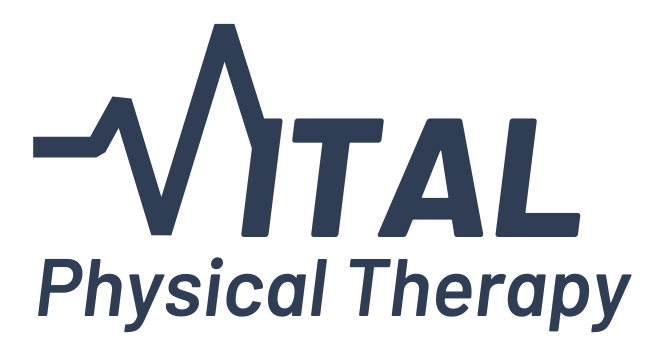Mild Prolapse After Baby? How a Pelvic Floor Physical Therapy Can Help
At Vital Physical Therapy, a cash-based pelvic floor physical therapy clinic in Saint Charles, MO, we often see women like Jane, who are navigating the physical and emotional challenges of postpartum recovery. Jane came into our clinic on a Friday, five months postpartum, experiencing pelvic heaviness and bladder leakage, especially when coughing or sneezing.
These are common postpartum symptoms, but they are not normal, and more importantly, they are treatable.
Understanding Jane’s Symptoms: Bladder Leakage and Pelvic Heaviness
During our comprehensive, one-on-one evaluation, we took time to listen to Jane’s story. How her symptoms were affecting her daily life, exercise routine, and overall well-being. We followed this with a head-to-toe physical assessment, including internal pelvic floor muscle evaluation.
What we discovered was a mild pelvic organ prolapse, a condition where one or more pelvic organs (like the bladder or uterus) begin to descend due to weakened or stretched pelvic floor muscles. This often presents as:
A feeling of "heaviness" or "dragging" in the pelvic area
Increased symptoms with standing, lifting, or end-of-day fatigue
Stress incontinence (leaking urine with coughing, sneezing, or exercise)
What Does Mild Prolapse Mean After Birth?
Mild prolapse is very common postpartum, especially in the first 6–12 months as your body is still healing. Factors like vaginal delivery, perineal tearing, pushing time during labor, and even genetics can contribute.
But here’s the good news:
With skilled pelvic floor physical therapy, most mild prolapse symptoms can be significantly improved and often fully resolved without surgery.
At our Vital Physical Therapy, we help postpartum women:
Regain core and pelvic strength
Stop bladder leakage
Get back to fitness and daily life with confidence
What Does Treatment Look Like for Postpartum Prolapse? Jane’s Personalized Care Plan
When it comes to postpartum prolapse, there’s no one-size-fits-all approach. Each woman’s recovery journey is unique and that’s exactly how we approached Jane’s care.
Because Jane is only five months postpartum, her body is still healing. Our goal is to support that natural healing process while helping her stay active in her daily life, caring for her children, returning to work, and continuing her fitness routine without discomfort or leakage.
After a thorough evaluation, we developed a customized treatment plan tailored to Jane’s symptoms, goals, and lifestyle. Her program includes:
Targeted pelvic floor strengthening exercises, focused on muscle coordination and endurance
Real-time biofeedback and coaching from her pelvic floor therapist to help her manage intra-abdominal pressure during daily movements
A bladder support device worn during exercise to reduce prolapse symptoms and minimize bladder leakage
Education and movement strategies to reduce strain on healing tissues while staying mobile and strong
This collaborative approach allows Jane to stay active while promoting healing and symptom relief. By integrating evidence-based techniques with tools that fit her lifestyle, we’re setting her up for long-term success not just short-term symptom management.
Your Recovery Should Be Just as Unique as You Are
Just like Jane, your postpartum body deserves a treatment plan that fits your lifestyle, your goals, and your stage of healing.
Whether you're dealing with prolapse, bladder leakage, or pelvic pain, we’re here to help with expert guidance and compassionate care.
Don’t let pelvic discomfort keep you from doing what you love.
Call Vital Physical Therapy today at (636) 226-1755
Or book online to schedule your consultation with a licensed pelvic floor physical therapist.


